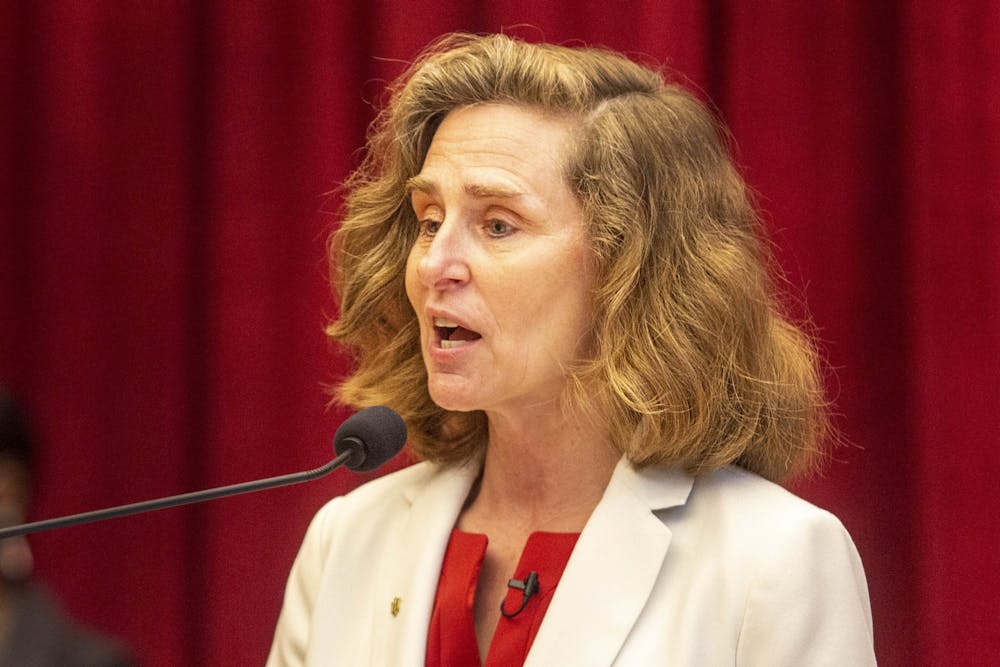A survey was created by IU faculty to gauge interests and concerns people want new IU President Pamela Whitten to focus on when she takes office Thursday. The survey asks people to share IU-related topics they would like President Whitten to consider as part of her outreach when she takes office.
As of Tuesday evening, a little over 2,500 people have taken the survey, about 19% of which were undergraduate students, IU Spokesperson Chuck Carney said.
The survey is being used as a tool to get an idea of the issues and concerns that IU students, faculty, staff and others have regarding the university. Carney said Whitten will pick up on the themes that came out of the survey answers and address them.
Student body President Ky Freeman and Vice President Madeline Dederichs said they think the survey is a good initiative to hear more student voices.
“I would say the student engagement was not there as much as I would like to have seen it with McRobbie,” Freeman said. “Refocusing that and making it a priority of giving student insight from the very beginning of [Whitten’s] presidency is going to establish a strong connection.”
Freeman said that the survey should not be seen as the only way of making sure student voices are heard. He said students can contact their student government representatives, email President Whitten directly or contact him and Dedrichs to make sure their voices are heard.
Dederichs said the survey is a good idea and the genuine curiosity of what students want to see the campus work on is refreshing to her. She said she is interested in the end results of the survey showcasing how IU implemented student voices into their initiatives.
“For now, we do have a platform to be able to voice concerns,” she said. “The only way to know if it wasn’t superficial and it was genuinely there to support students is to see those action steps taken within the first 100 days.”
Freeman and Dederichs said they have not yet had the chance to meet with Whitten, but hope to work with her on things such as carbon neutrality at IU, evaluating anti-racist structures and increasing enrollment for students from underrepresented backgrounds.
Freeman said all of the work Whitten will do in office needs to be done while listening to student voices.
Dederichs said that Whitten’s introduction to campus will be interesting because things are going back to being in-person and that immunocompromised people will need to be kept in mind.
First-year graduate student Ruby Flores-Camacho said she saw the survey on IU’s Queer Student Union’s social media.
She said she is concerned that not enough IU students have filled out the survey for President Whitten to understand what people want out of her presidency.
Flores-Camacho said she hopes Whitten focuses on raising graduate student stipends so they have more liveable wages and diversity, equity, and inclusion initiatives on campus.
“I hope [Whitten] puts students first because, at the end of the day, that’s who IU is serving,” she said.






